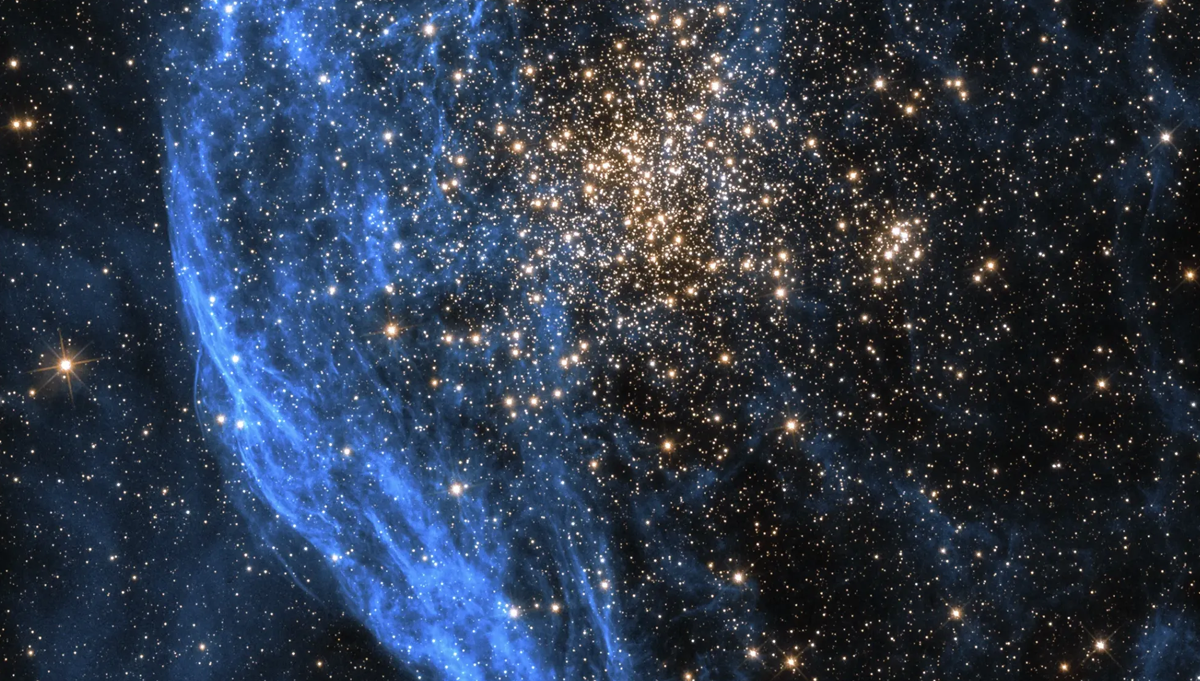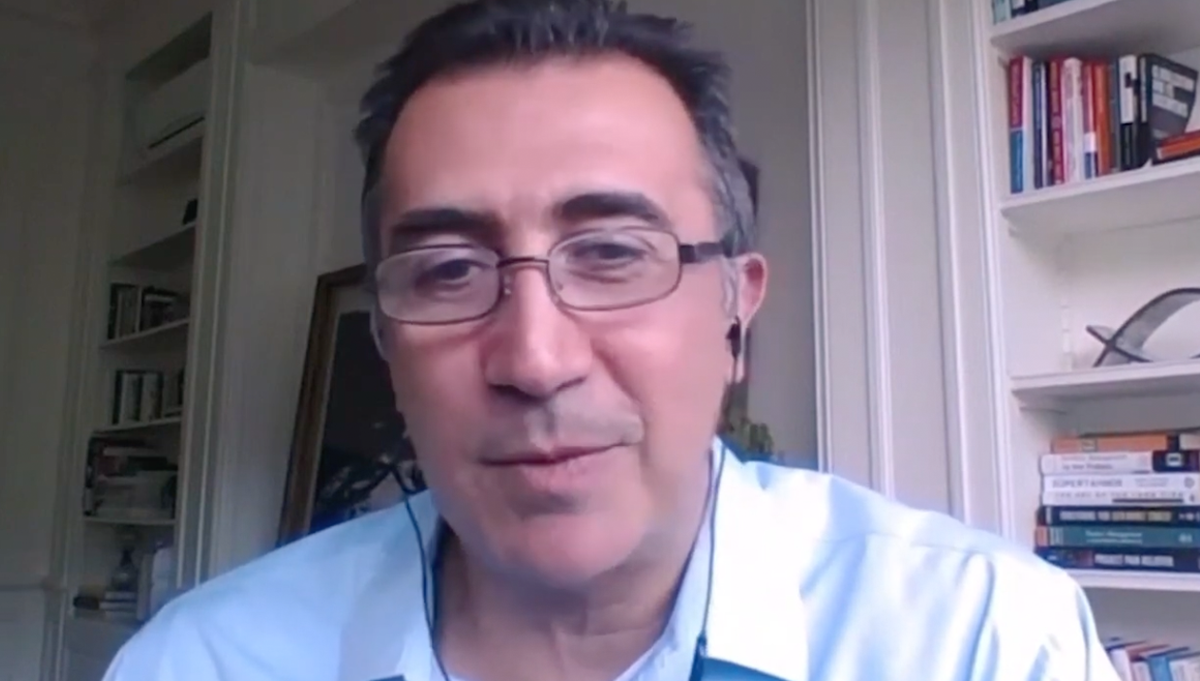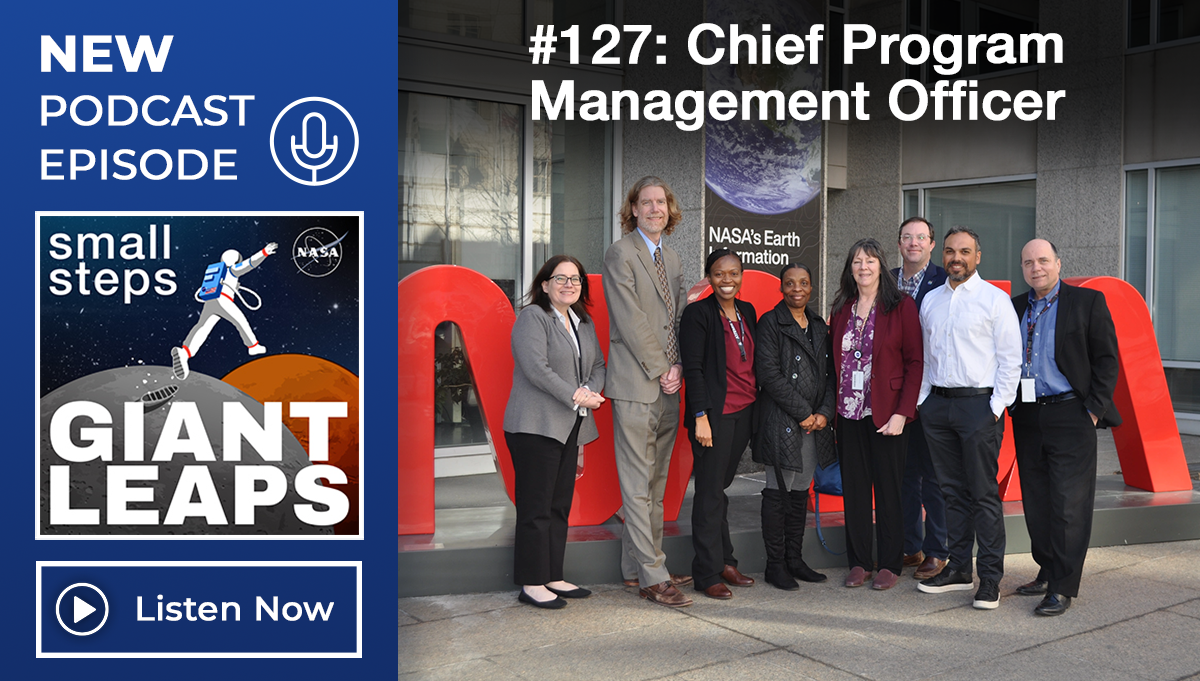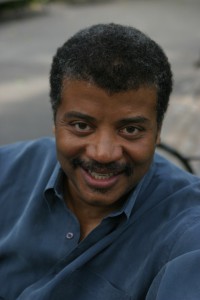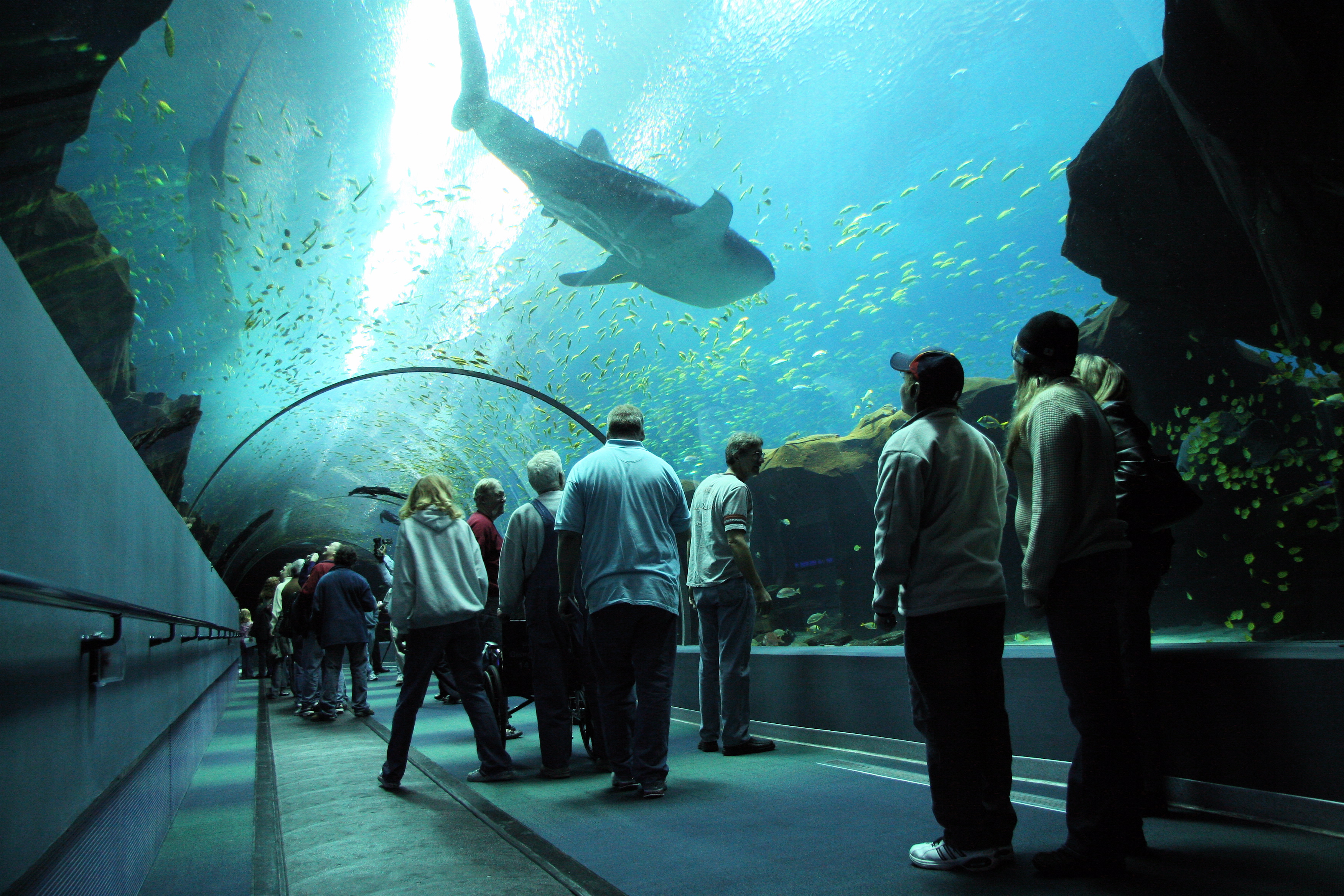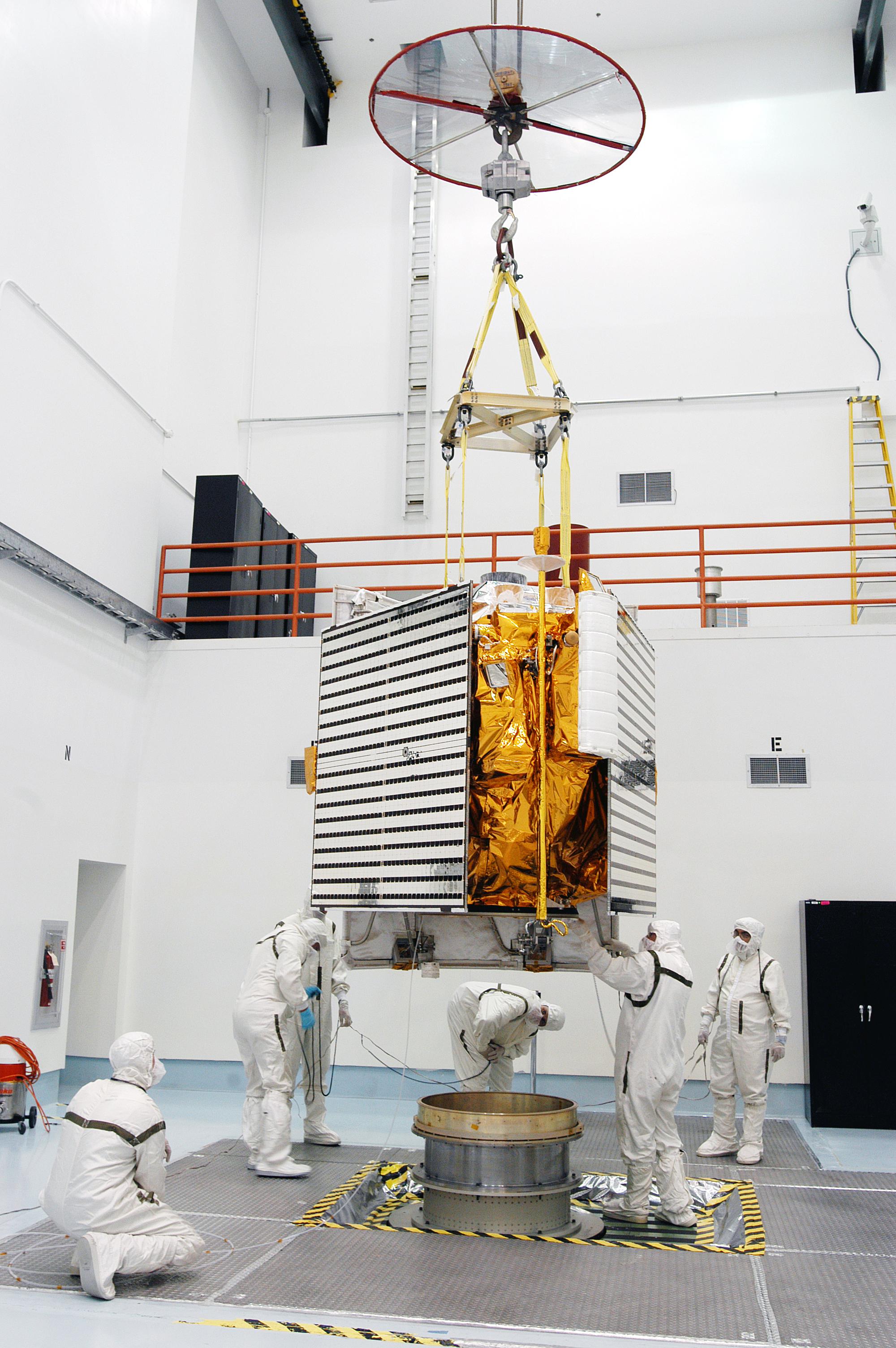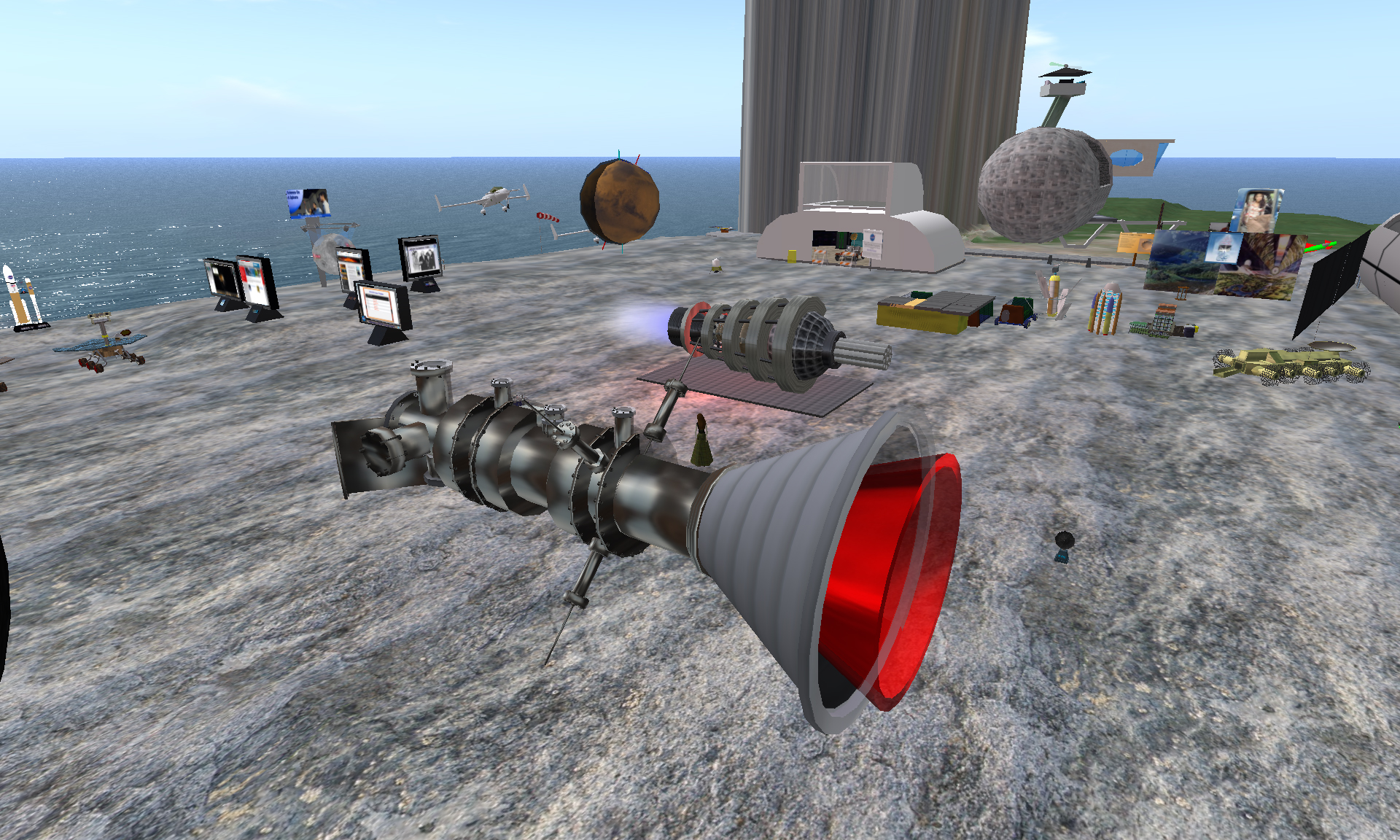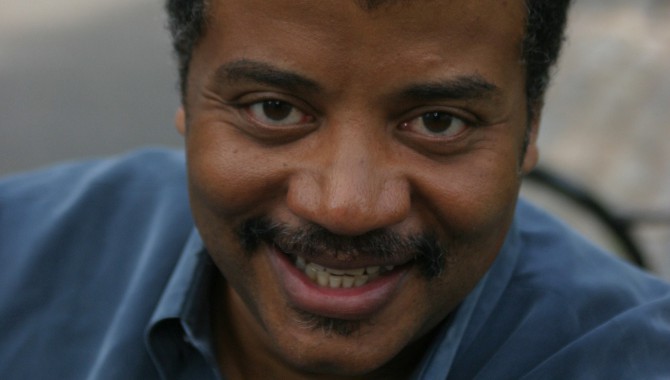
By Don Cohen
Neil deGrasse Tyson is an astrophysicist with the American Museum of Natural History in New York City, where he also serves as the Frederick P. Rose Director of the Hayden Planetarium.
In addition to writing for many professional publications, Tyson has written popular science books, including his memoir,The Sky Is Not the Limit: Adventures of an Urban Astrophysicist, and Death by Black Hole and Other Cosmic Quandaries. He is the host of PBS’s NOVA ScienceNOW and has served on presidential commissions studying the future of the U.S. aerospace industry and the implementation of the United States’ space exploration policy. Don Cohen talked to him in New York.
COHEN: How does NASA affect your work as head of the planetarium?
TYSON: In two fundamental ways. One relates to the public’s appetite for the cosmos, stimulated by discoveries and missions conducted by NASA. Since there are hardly any NASA facilities in the Northeast—hardly anyone knows about GISS [Goddard Institute for Space Studies]—it has no direct presence in the hearts and minds of New Yorkers. For many people, the Rose Center for Earth and Space and the Hayden Planetarium are the closest they’ll ever get to NASA in this region of the country. So we closely monitor missions and frequently design programs around NASA science.
COHEN: For example?
TYSON: We recently had our annual Isaac Asimov panel debate on “Mining the Sky”—what to do about the natural resources of space scientifically, culturally, morally, and ethically. I had an engineer from NASA Marshall, Curtis Manning, who specializes in in situ resource utilization. I got Cassie Conley, the head of the planetary protection group at NASA, to talk about what it means to go into space in search of resources, either in support of space-based activities or to bring back here. We also had a mining geologist to ground everyone, figuratively and literally.
COHEN: What’s the other way NASA connects to your work?
TYSON: We apply for support money from NASA for programs we run. Our most visible NASA-supported programs are space shows. In the old days, the planetarium director would stand up with a microphone and recite what constellations were visible that season. That doesn’t play anymore, nor should it. We know too much about the universe and the universe is too dynamic, too broad and deep, for anyone to believe that pointing out objects in the night sky constitutes astronomy any more. So we identify various cosmic objects and take the viewer there visually. We’ve enjoyed NASA support for each of the shows that we’ve produced over the past eight years.
COHEN: How would you characterize public response to NASA?
TYSON: People are generally completely supportive. Those who grumble about science and space don’t tend to visit us.
Our visitors are self-selected, of course, but the numbers have gone up. We get families, kids, international visitors. We show them the universe as it is and how we’ve come to learn our place in the universe. We give it context. We are fundamentally linked to the geological sciences, to the anthropological sciences, to the archaeological sciences. Context matters when someone says, “Let’s go to space!” and someone else says, “Well, why?”
COHEN: Context matters because …?
TYSON: Often the “why” isn’t, “Here’s the answer.” The why is, “Here’s the landscape in which this activity is unfolding.” Once you understand the landscape, it’s self-evident why we are undertaking these activities. So I see almost complete support for our space activities.
COHEN: What kind of effect has NASA had on you personally?
TYSON: I was born the same week NASA was founded, so we’re the same age and feel some of the same pains, joys, and frustrations. But the Apollo program had no effect on me.
COHEN: Why no effect?
TYSON: Because the astronauts were military pilots. They had crew cuts. Their skin was many shades lighter than mine. That was not an adventure that at all considered me as one of its participants, so I couldn’t consider myself as one of them. It’s not that I didn’t appreciate what NASA was doing. I was as excited as the next person that we landed on the moon. It was a great engineering feat, a great technological feat. It just didn’t influence my ambition to become a scientist. My interest came about entirely separate from that.
COHEN: Where did it come from?
TYSON: From my first visit to Hayden Planetarium, where I saw the night sky as never before, as undreamt of actually, because I grew up in the Bronx and I was sure the night sky was maybe eight stars, ten on a good night—not the thousands they were showing me. I thought it was a hoax. A couple of years later, I looked up with binoculars and the universe looked really different than it did with the naked eye. I realized that maybe what I was seeing from the Bronx was not the real thing. So NASA was going into low- Earth orbit and then to the moon and back, and my interest was being forged on the large-scale universe.
COHEN: In 1968, a year or so before the moon landing, I heard a talk by [astronomer] Fred Hoyle where he said space exploration was all well and good, but it would never replace looking through a telescope.
TYSON: Unless you figure out how to get to the place the telescope sees. I think he’s right for the large-scale universe, but I bet he would not have imagined what we would glean just from our own planetary system from space probes that have been as far out as Saturn. Now we know that the moons are in many ways more interesting than the planets themselves. I don’t think he could have imagined that at the time. So space travel is replacing telescopes. No one is saying, “Give me a good telescopic view of Saturn.” No, we just call Cassini and say, “What have you got for me today?” So Hoyle was half right.
COHEN: What do you think our relative investment in robotic and human space exploration should be?
TYSON: I wear two hats. As a pure scientist, I would say, “Just send robots.” For every astronaut you send up, you could send ten or more robots to ten different places. Very few scientists, given that specific choice and given the relative cost of the two, would say, “Send people instead of robots.” But I also spend a good part of my professional life interacting with the public. I’m a public educator and a public scientist. In that capacity, I’d say there is no question that human exploration of space has no substitute. Nobody names high schools after robots. People have said, “Look at the interest shown in the Mars rovers.” That’s undeniable, but let’s go back forty years. There were robotic missions to the moon. Does anyone remember them who wasn’t directly involved in them? Of course not, because people were going to the moon.
There’s no substitute for the thrill of having one of your own explore, without specific reference to a scientific goal. We’ve been doing it from the very beginning, and I see no reasons why we wouldn’t want to continue. For many people, it is the motivation for the exploration of space, because we can explore vicariously through the eyes of an explorer who can experience, who can feel, who can emote. People criticize the golf ball that was hit on the moon, but I celebrate that, because it’s something a human would do. A robot follows your commands; humans can be a little naughty now and then. When you send one of your own, you can track that person, you can ask, “What school did they go to? What’s their hometown?” There will be headlines on them, and every chapter in their past lives will be captured and celebrated by the press. You’ll create role models. Robots just don’t make role models.
If you want a nation to have space exploration ambitions, you’ve got to send humans. So if you catch me on a science day, I’m going to tell you, “Leave the people home.” Then there’s the reality check and I say, “We need to have people reaching the frontier of space exploration. That makes the headlines.” History has shown that and the future will bear it out. You don’t contrast rovers and shuttle missions; that’s not the right comparison. When you spend all your time “driving around the block,” where one mission is no more ambitious than the previous one, headlines do not follow—unless of course there’s a disaster, like Challenger and Columbia. You’ve got to compare Mars rovers to human exploration of some place where humans have never been. Then find out who’s getting the headlines.
COHEN: In one of your essays in Death by Black Hole, you say robots are only good at finding what you know you’re looking for.
TYSON: I think a robot can find something unexpected but, yes, it’s true you program a robot for what you expect to see. You program it to climb over a particular kind of rock, to look in a certain spectral band, to dig in a certain way. Something completely unexpected could go unnoticed.
COHEN: What do you think was the most significant accomplishment of NASA’s first fifty years?
TYSON: People like to say it was landing on the moon. I’d phrase it in a different way. The most significant accomplishment was saying we would put someone on the moon and then doing it. I think we would eventually have put someone on the moon but to say it and then do it speaks to a high level of ambition. In some ways, the landing was the easy part. What you had to do to get to that point was the hard part. The Mercury missions and Gemini missions were steps toward landing on the moon: the one astronaut, the two, the three, the spacewalk, the docking—all of those were proving grounds. That’s where the cross-pollination of the various engineering disciplines came in. The aerospace engineering, the material engineers, the scientists had to come together with a single mind. It’s not often you get that for small projects, much less large ones, much less ones that are government-agency mandated. I think without question that’s the greatest achievement.
COHEN: What would you like to see NASA commit itself to next?
TYSON: I’m not naïve enough to think that just because we went to the moon we’re automatically going to land on Mars. What drove the moon landing was a flow of money commensurate only with times of war, because we were at war with the Soviet Union.
COHEN: NASA got 4 percent of the federal budget then.
TYSON: That was a war budget, and when you’re at war you spend money. I think the greatest challenge now is to ask what else can drive the expenditure of money. One of the big drivers is the promise of the growth of wealth. So I think space tourism, which for a while was considered a fringe activity, may be the most important source of capital for the future of space exploration. Yes, one job of a government with foresight is to invest where capital markets have yet to tread, but then the government needs to open those pathways for others to create the market, allowing space travel to become routine.
COHEN: We’re at the beginning of that process.
TYSON: You can smell it in the air. The entrepreneurs who are out there—the X PRIZE, Space X—have the goal of making space exploration cheap enough to attract tourists. Once you have an industry, you invite competitors that will continue to drive the price down and create more opportunity. I’m a big supporter of that notion. I think many futurists of the Apollo era were naïve. Nearly all of them said things like, “We’re on the moon now, we’re explorers, we’re discoverers. Mars is next. We’ll be on Mars by 1985.” Reality check, please. Somebody is paying for this. Who? It’s Congress. Why? Because of the communists. It wasn’t because Congress thinks exploration is a great thing to do.
In fact the history of exploration across nations and across time is not one where nations said, “Let’s explore because it’s fun.” It was, “Let’s explore so that we can claim lands for our country, so that we can open up new trade routes; let’s explore so we can become more powerful.” It was never, “Let’s explore so that we can understand science better.” I wish it were, but there’s no history of that. Maybe the explorers themselves felt that way, but somebody had to sign the check, and the people signing the check did not share those philosophies.
COHEN: Are there good ways to demonstrate the value of NASA to the public?
TYSON: I think one of the greatest ways to assess the value of an agency to a nation is to do the following experiment: ask people how much money they think an agency gets. When they do it for NASA, they think it’s something like 10 percent of the federal budget. Then you tell people how much money they actually get. The ratio of those two numbers is the magnifier impact of every dollar spent. So the fact that everybody thinks NASA’s budget is ten to fifty times larger than it is tells you how successful NASA is at what it does. That should be celebrated. If NASA is so visible that people think it’s 10 percent of the federal budget when it’s six-tenths of one percent, somebody’s doing something right. There ought to be a government index that ranks agencies by how much money people think they’re getting. I bet NASA would come out at the top. I think the public needs to understand more than technology spinoffs. I think much too much has been made of spinoffs.
COHEN: Although people are not aware of how much useful technology NASA has developed.
TYSON: That’s true, and that story should be told no matter what. But I think NASA has a bigger story, a more noble story to tell. The exploration and research conducted by NASA have the potential to circumvent problems that right now we’re simply running away from.
COHEN: Like what?
TYSON: Mars once was wet and fertile. It’s now bone dry. Something bad happened on Mars. I want to know what happened on Mars so that we may prevent it from happening here on Earth. Venus has a runaway greenhouse effect. Something bad happened on Venus, too. It’s an experiment that has already run its course there; we don’t have the luxury of performing that experiment here on Earth. There are cosmic hazards that we were all ignorant of but certainly existed in 1900. We learned of them because of space exploration. For instance, asteroid impacts. One slammed into Earth 100 years ago this June in Tunguska, Siberia. We’re cataloguing asteroids so that if a big one is headed this way, we can go out and deflect the damn thing rather than build shelters and try to run away from it. Without a space program, you end up running away from problems, when in fact we have scientists, engineers, clever people who can actually stop the thing in the first place. That’s what vaccination was all about: instead of treating your symptoms, let’s prevent the disease in the first place. That’s taken for granted when it’s done by medicine. But with other dangers, people might say, “This tornado is big, we need a better shelter,” or, “I’ll build a levee so that I don’t get flooded next time,” rather than stopping the storm system in the first place. A great thing about science is that you can control many things once you understand them. You can’t just run away from problems all the time. Space exploration is a means of coming to understand our place in the universe because the universe is not always a garden of Eden. Sometimes it’s hostile. So I see this investment as buying into our space security.
COHEN: One or more of the presidential candidates has talked about using most of NASA’s money for Earth-related missions.
TYSON: You want some money on the earth, but if you always concentrate on the earth, you miss the stuff coming in from outside. Not only that. Discovering that which was unknown to the generation before you is a noble quest. Only the greatest of civilizations have had the luxury to do that. America is the country I want to live in because that is the kind of legacy we have enjoyed. I recently gave a talk to 900 people and the last question of the day was, “Suppose, in the new administration, everyone votes to cancel all science projects and devote the money to programs that help people. If you were given the choice of one and only one science project to have happen, what would that be?” You know what I’d do? I’d use that money to build a boat and sail to a country that’s investing in science projects. America would no longer be the country I grew up in, the one that believes we’ll have a tomorrow different from today because we’ve funded creative people whose goal in life is to make a better world.


